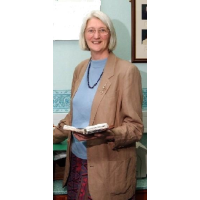Fresh Look at Literacy

Texts, emails and computer games could help students unlock their learning potential, according to researchers.
Media-savvy college students may have little difficulty firing off text messages and surfing the web but some struggle to make the grade in class.
Researchers at Lancaster and Stirling Universities and four further education colleges have embarked upon a three-year study designed to find ways of improving student literacy standards by looking at the ways in which they read, write and communicate outside the classroom.
Co-ordinated by Dr Roz Ivanič at Lancaster University Literacy Research Centre and Richard Edwards at The Centre for Research on Lifelong Learning, University of Stirling, the Literacies for Learning in Further Education project is part of the Economic and Social Research Council’s £28 million Teaching and Learning Research Programme.
Over the coming months, 128 students at four different further education colleges - Lancaster and Morecambe, Preston, Anniesland (Glasgow) and Perth - will be interviewed by researchers about the sorts of reading and writing they do throughout the day.
Students will also be lent cameras to take photographs of the kinds of the literacy activities they are involved in outside of lessons, from reading timetables to chatting on-line.
Although the study has just begun researchers have already found that many students lead rich literacy lives outside the classroom. For example researchers spoke to one student who was struggling with his course because he had difficulty writing and using a dictionary, yet he was fully competent at reading complex car manuals, magazines and websites.
Other examples of reading and writing based activities popular with students include:
· Mobile phone texting
· Playing computer games
· Reading magazines
· Emailing
Findings from the study will be used to help make recommendations about the way college courses are run from induction to assessment.
Dr Ivanič said: “There is growing evidence that student’s grades suffer because of the literacy demands of their courses. Yet recent theory and research in literacy studies suggests that students who appear to have low levels of literacy in educational settings can be highly literate in other domains of life: in their work, domestic, community and leisure activities.
Our aim is to work at the interface of these two types of literacy to make learning easier for students and to enable them to produce better results.”